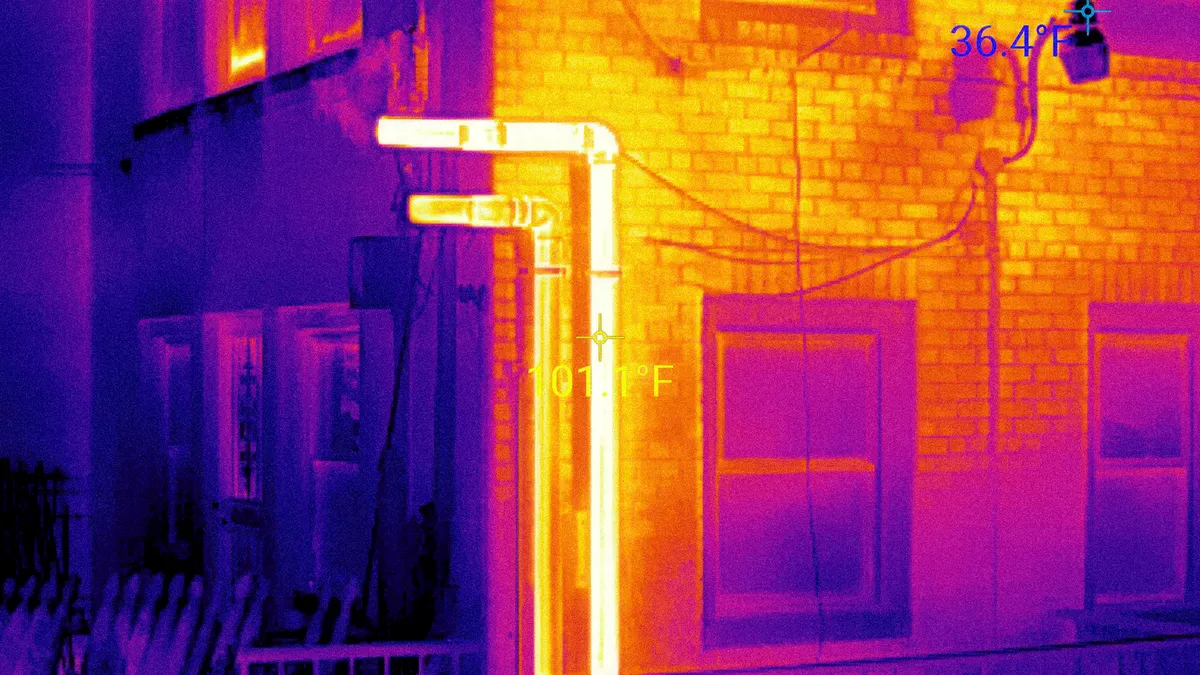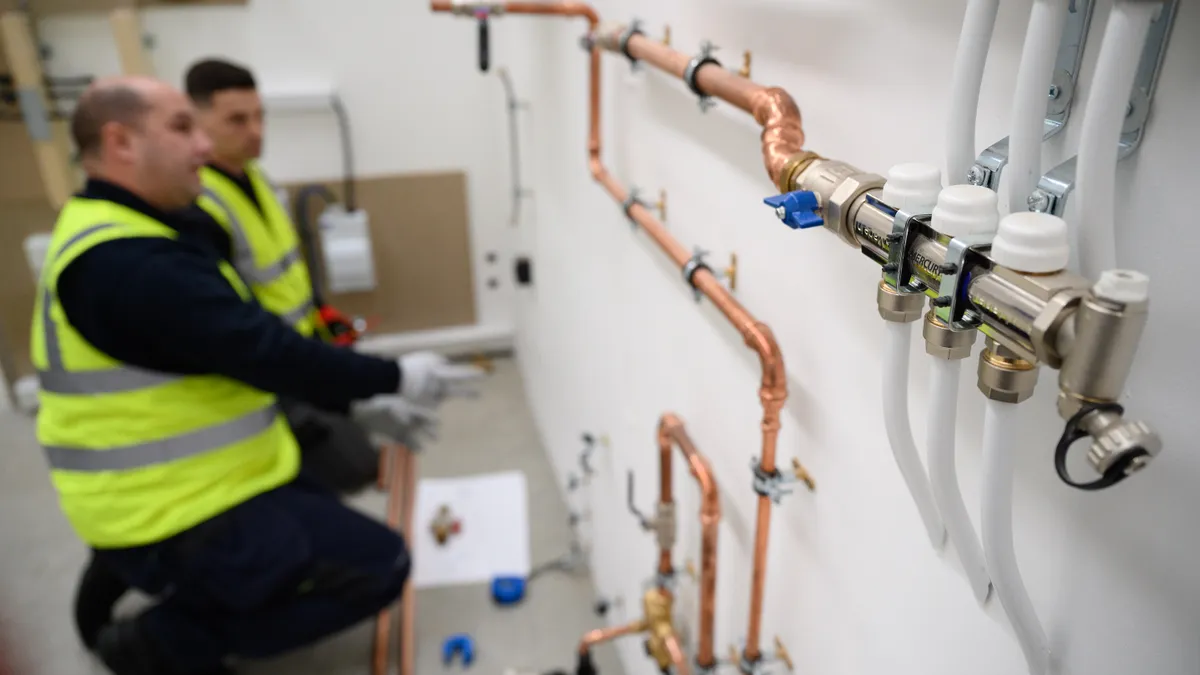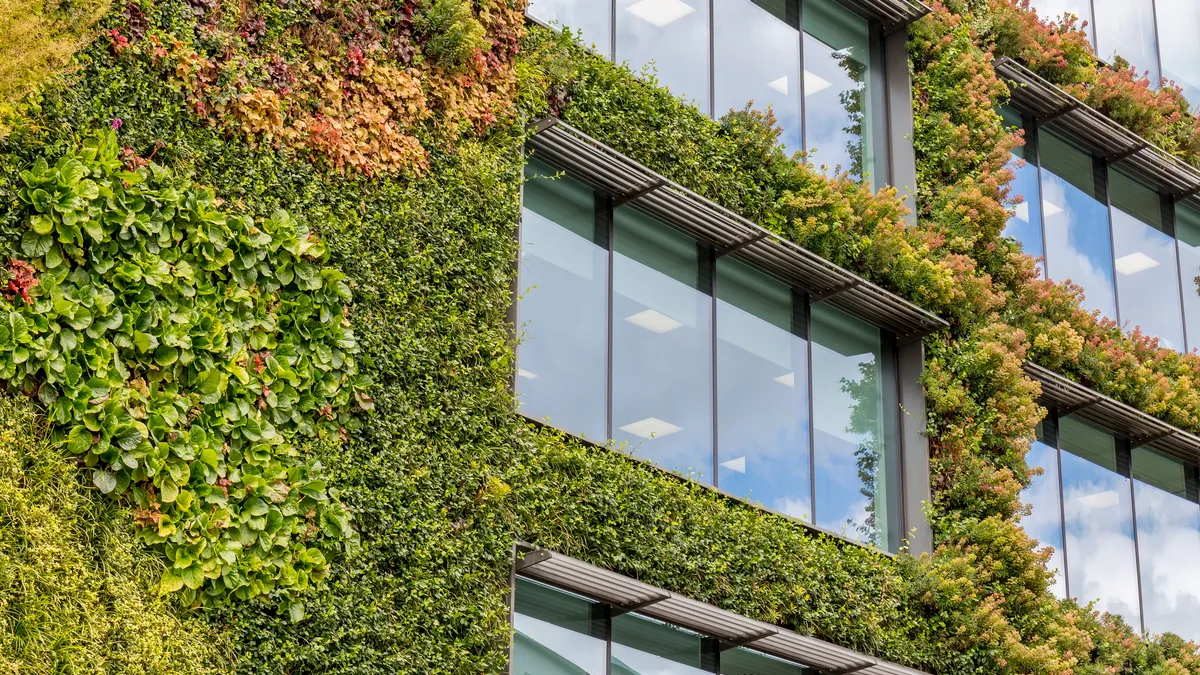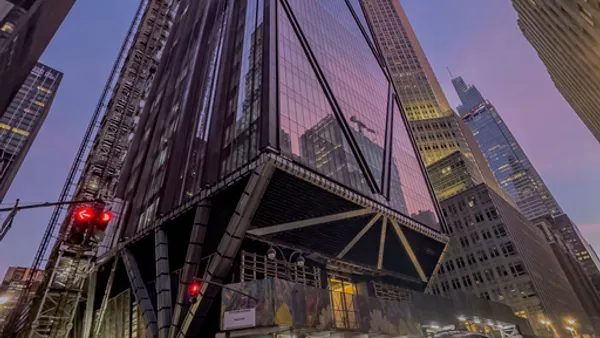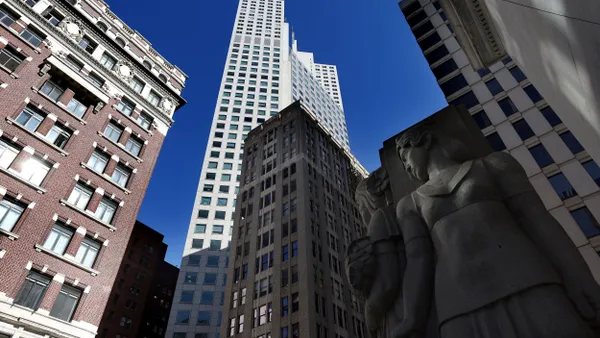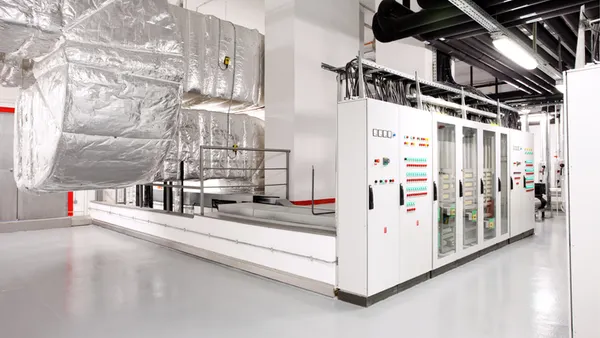Dive Brief:
- Aeroseal, which tackles air leakage in new construction and existing buildings, has received $67 million in new funding through a series B round, according to a press release.
- The round was led by Climate Investment and Bill Gates’ Breakthrough Energy Ventures as part of an eight-member consortium that included Aramco Ventures, Beazer Homes and existing partners 2150, Building Ventures, and Energy Impact Partners.
- The climate technology firm also entered into a strategic alliance with PEG to help builders comply with updates to building codes, according to a Monday news release.
Dive Insight:
Buildings account for roughly 40% of carbon emissions worldwide, according to the World Green Building Council. Leaky air duct systems are a key climate offender, leading to a wastage of up to 40% of energy used to heat or cool buildings.
Sealing air ducts, which are often inside walls, can be difficult. But Ohio-based Aeroseal’s technology works through those ducts from inside, without the need to cut into a wall. The company said it introduces a fog of sticky, non-toxic and non-flammable polymers into a building’s pressurized air ducts and envelopes to create seals, without the need to physically access those leaks. This process replaces laborious, and often unreliable, manual sealing methods.
Marc Van Den Berg, global managing director for ventures at Climate Investment, said in the release that Aeroseal’s products have lowered energy use in buildings by 30% on average.
The startup’s CEO Amit Gupta said in a statement that the company expects to use the funds to meet increased demand for “healthier energy-efficient spaces, tighter regulations, and greater incentives tied to adopting newer codes.”
Gupta added that many builders are likely to view Aeroseal’s technology as a cost-effective solution to achieve net-zero building emissions, and that the Inflation Reduction Act incentives are facilitating a quicker adoption of its technologies by unlocking billions of dollars in tax credits.
Aeroseal said it has already sealed more than 260,000 buildings across 30 countries, and contributed to more than half a million tons of CO2 emission reductions since its inception. The company hopes to channel the series B funds toward securing an equal number of commercial and residential buildings annually in the next three years, CEO Amit Gupta said.
The National Energy Renewable Laboratory noted that the Aeroseal system could seal holes of up to half an inch in diameter. “[D]ucts that are very dirty, which are especially prevalent in older homes, should be cleaned first,” the NREL report said, adding that foam plugs can be used to block supply grilles, supply registers and heat exchangers to prevent sealant from accumulating on those surfaces. Holes larger than half an inch must be separately sealed.
Meanwhile, Aeroseal hopes to use its alliance with PEG to address a multitude of challenges that builders are facing to comply with building code updates and requirements for performance certifications and federal incentives. Aeroseal said it can help builders cost-effectively achieve advanced energy targets, such as EnergyStar and net zero, by combining PEG’s low envelope air leakage offerings with the scalability of Aeroseal’s spinoff, AeroBarrier, which was developed to seal existing ductwork.


